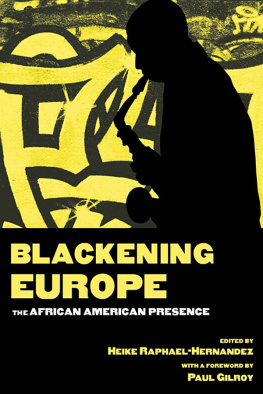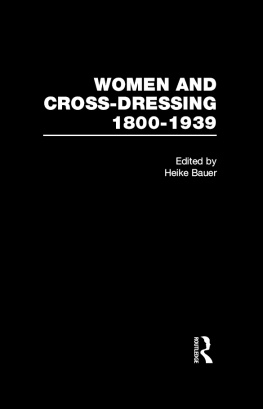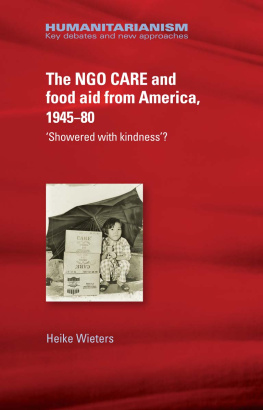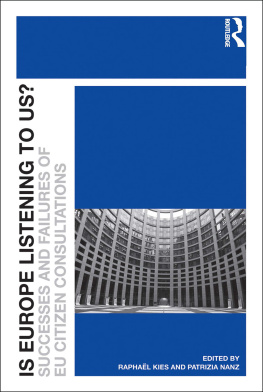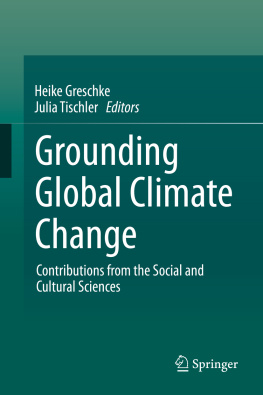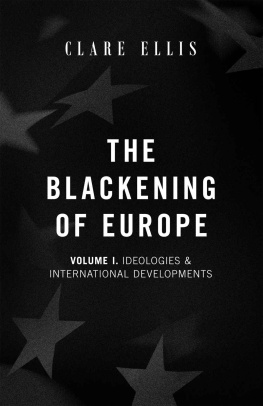Heike Raphael-Hernandez - Blackening Europe: The African American Presence
Here you can read online Heike Raphael-Hernandez - Blackening Europe: The African American Presence full text of the book (entire story) in english for free. Download pdf and epub, get meaning, cover and reviews about this ebook. year: 2004, publisher: Routledge, genre: History / Science. Description of the work, (preface) as well as reviews are available. Best literature library LitArk.com created for fans of good reading and offers a wide selection of genres:
Romance novel
Science fiction
Adventure
Detective
Science
History
Home and family
Prose
Art
Politics
Computer
Non-fiction
Religion
Business
Children
Humor
Choose a favorite category and find really read worthwhile books. Enjoy immersion in the world of imagination, feel the emotions of the characters or learn something new for yourself, make an fascinating discovery.
- Book:Blackening Europe: The African American Presence
- Author:
- Publisher:Routledge
- Genre:
- Year:2004
- Rating:3 / 5
- Favourites:Add to favourites
- Your mark:
- 60
- 1
- 2
- 3
- 4
- 5
Blackening Europe: The African American Presence: summary, description and annotation
We offer to read an annotation, description, summary or preface (depends on what the author of the book "Blackening Europe: The African American Presence" wrote himself). If you haven't found the necessary information about the book — write in the comments, we will try to find it.
Blackening Europe: The African American Presence — read online for free the complete book (whole text) full work
Below is the text of the book, divided by pages. System saving the place of the last page read, allows you to conveniently read the book "Blackening Europe: The African American Presence" online for free, without having to search again every time where you left off. Put a bookmark, and you can go to the page where you finished reading at any time.
Font size:
Interval:
Bookmark:
Writings on Black Women of the Diaspora: History, Language, and Identity
By Leantin L. Bracks
The Slaves of Liberty: Freedom in Amite Country, Mississippi, 18201868
By Dale Edwyna Smith
Black Conservatism: Essays in Intellectual and Political History
Edited by Peter Eisenstadt
Moving On: Black Loyalists in the Afro-Atlantic World
Edited by John W. Pulis
Afro-Virginian History and Culture
Edited by John Saillant
Unyielding Spirits: Black Women and Slavery in Early Canada and Jamaica
By Maureen G. Elgersman
Historical Roots of the Urban Crisis: African Americans in the Industrial City 19001950
Edited by Henry Louis Taylor, Jr. and Walter Hill
Gender in the Civil Rights Movement
Edited by Sharon Monteith and Peter J. Ling
Hitlers Black Victims: The Historical Experiences of Afro-Germans, European Blacks, Africans, and African Americans in the Nazi Era
By Clarence Lusane
Contested Terrain: African American Women Migrate from the South to Cincinnati, Ohio, 19001950
By Beverly Bunch-Lyons
Black Religious Intellectuals: The Fight for Equality from Jim Crow to the Twenty-first Century
By Clarence Taylor
Rebels, Reformers, and Revolutionaries: Collected Essays and Second Thoughts
By Douglas Egerton
Problematizing Blackness: Self-Ethnographies by Black Immigrants to the United States
Edited by Jean Muteba Rahier and Percy Hintzen
Blackening Europe: The African American Presence
Edited by Heike Raphael-Hernandez
Edited by
Heike Raphael-Hernandez
With a Foreword by Paul Gilroy
ROUTLEDGE
NEW YORK AND LONDON
Published in 2004 by
Routledge
29 West 35th Street
New York, NY 10001
www.routledge-ny.com
Published in Great Britain by
Routledge
11 New Fetter Lane
London EC4P 4EE
www.routledge.co.uk
Copyright 2004 by Taylor and Francis Books, Inc.
Routledge is an imprint of the Taylor and Francis Group.
Printed in the United Stated of America on acid-free paper.
10 9 8 7 6 5 4 3 2 1
All rights reserved. No part of this book may be printed or utilized in any form or by any electronic, mechanical or other means, now known or hereafter invented, including photocopying and recording, or any other information storage or retrieval system, without permission in writing from the publisher.
Library of Congress Cataloging-in-Publication Data
Raphael-Hernandez, Heike.
Blackening Europe: the African American presence / Heike Raphael-Hernandez.
p. cm.
ISBN 0-415-94398-1 (alk. paper) ISBN 0-415-94399-X (pbk.: alk. paper)
ISBN 978-1-136-07202-4 (ePub)
1. BlacksEuropeSocial conditions. 2. EuropeEthnic relations.
3. EuropeRace relations. 4. African American jazz musiciansEurope.
5. BlacksEuropePublic opinion. I. Title.
D1056.2.A7R36 2003
305.89607304dc21
2003009695
Part II: Accompanying Europe into the Twenty-first Century
15 Make Capital Out of Their Sympathy: Rhetoric and Reality of U.S. Slavery and Italian Immigrant Prostitution along the Color Line from the Nineteenth to the Twenty-first Century
Many people showed their genuine interest in the fundamental ideas of Blackening Europe: The African American Presence and participated with challenging discussions at many different sites and occasions. I owe thanks to all of them. Because it is not possible to include all, I would like to name some in particular whose ideas contributed to the final product in very different but wonderful ways. Graham Hodges encouraged me to (actually insisted that I) turn an idea into reality. Denise Sokolowski, head librarian at the University of Maryland University College in Europe, has been awarded the title Research Wizard for locating material that seemed to be unlocatable. Pirjo Ahorkas established the initial contact with Pekka Jalkanen in Finland. Lene Johannessen, Roy Goldblatt, Anastasia Stefanidou, Mara Fras, Maria Sternkvist Proitsaki, Jaroslav Kusnir, Elisabetta Marino, Peter Gardner, and their students participated in a longer discussion about the European-wide MTV impact on youth culture. Many people read parts of the manuscript, but I would like to thank in particular Susan E. Tomlison, Frank Lay, Rocio Davis, Heide Weidner, and Thomas DeFrantz. Rares Beuran offered several pictures from his rich collection of contemporary Roma life. Vikram Mukhija, Jaclyn Bergeron, and Karen Wolny were a great team to work with at Routledge.
My biggest thanks goes to my homefrontDon and Markus, Jakob, and Jonathanan incredible bunch full of humor, support, and love. That this project is realized is also due to them.
PAUL GILROY
In the mid-1950s, Aim Csaire examined the condition of Europe amid the aftershock of the 193945 war and in the grip of anticolonial conflicts. He pronounced a grim and memorable judgment: European civilization was decadent and dying. In failing to answer the reasonable demands made by its colonial peoples for liberation, it had
Our judgment may be less categorical than his. It must necessarily be more alive to the ludic, cosmopolitan energy and the democratic possibilities so evident in the postcolonial metropolis. However, it is true that the big issue which we must now address in order to evaluate the health of Europes cultural and political institutions, has arisen right at the intersection of the items that composed Csaires inventory. Race and class have been articulated together, and profound questions concerning the depth and character of European democracy and unity are being posed by nationalist and racist responses to the claims of old settlers, new migrants, refugees, and asylum seekers. That list of aliens has been recently supplemented by the addition of other shadowy, infra-human figures: bodies without rights or recognition detained exceptionally in the course of the ongoing war against terror.
Very few of these vulnerable people were postcolonial settlers. New inflow from those quarters had been shut out long ago. Simple exclusionary mechanisms have ensured that Europes twenty-first-century retirement benefits will be paid for by Poles and Slovaks rather than Nigerians, Jamaicans, and Somalis. Happily, in some places, the grandchildren of the 1950s settler-citizens are negotiating their right to belong with some success, and not all of the latest incomers are actively racialized though many are, of course, demonized as Islamic terrorists in waiting.
This welcome volume rests upon the implicit demand to consider what the supposedly intrusive presence of strangers and the correspondingly punitive treatment dished out to them by various governments suggests about the condition of European civilization. It stands today, militarized once again and heavily fortified against the encroachments by its proliferating enemies, within and without. The war against asylum seekers, refugees, and economic migrants offers a chance to consider not just changing patterns of governmentality, commerce, and labor but to examine the cultural and ethical contours of Europe where the notion of public good and the practice of politics seem to be in irreversible declineundone by a combination of consumer culture, privatization, and the neoliberal ideology.
This collection affirms that the peculiar synonymity of the terms European and white cannot continue. And yet, against a wealth of detailed historical and cultural evidence, all across Europe, identity, belongingand embattled European region as a culturally bleached or politically fortified space, closed off to further immigration, barred to asylum-seeking, and willfully deaf to any demand for hospitality made by refugees and other displaced people.
Font size:
Interval:
Bookmark:
Similar books «Blackening Europe: The African American Presence»
Look at similar books to Blackening Europe: The African American Presence. We have selected literature similar in name and meaning in the hope of providing readers with more options to find new, interesting, not yet read works.
Discussion, reviews of the book Blackening Europe: The African American Presence and just readers' own opinions. Leave your comments, write what you think about the work, its meaning or the main characters. Specify what exactly you liked and what you didn't like, and why you think so.

